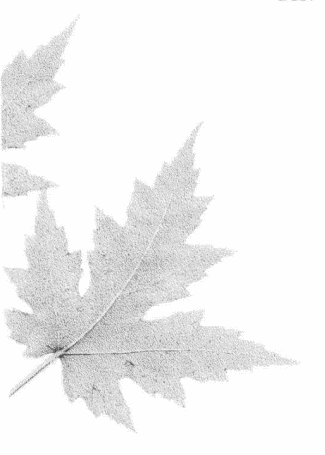The tradition of the dead weighs like a nightmare on the brain of the living.
-- Karl Marx, The 18th Brumaire of Louis Bonaparte
AS IN ANTIQUITY, the black church was born in the womb of oppression, and its adherents labored under the heel of slavery. In a climate of general repression, blacks (even so-called "freed" slaves) were prohibited from a wide range of jobs and crafts.
One area begrudgingly allowed them was that of preacher. It was a useful allowance, for an obeisant minister -- especially one who believed in the efficacy of long-suffering over rebellion -- could exercise tremendous influence over his fellow captives and save his white "Massa" countless difficulties. Vestiges of the same attitude can be seen in a recent controversy that surfaced during Christine Todd Whitman's first gubernatorial campaign in New Jersey: GOP strategists allegedly donated considerable sums to black preachers, who in turn promised to urge their congregations to refrain from voting. (The ministers in question, of course, vociferously denied all knowledge of this.)
On the positive side, the black pulpit has been a powerful battery that energized the struggle for civil rights, and as such, other human rights movements in the late twentieth century. It is noteworthy that the most influential African-Americans of our time have been clergymen, albeit of many varied religious traditions. Dr. Martin Luther King, Jr. and Minister Malcolm X (El Hajj Malik El-Shabazz) are only two of many who come to mind.
King's influence has been reflected in the recent past in many ways, especially in the widened access blacks have gained to professions and positions previously closed to them before the passage of various civil rights laws. The influence of Malcolm X, while equally evident in the same basic realms, is also reflected in the emergence of a new and different consciousness, particularly in the Black Panther Party and many other similar black nationalist organizations across America and the black world in the seventies.
The first, though perceived by many of his contemporaries as a radical, was at base a traditionalist whose views were largely synchronous with the conservativism of the black church in which he was raised. The second, known in many circles solely for his searing revolutionary oratory, complemented (at least in his later years) the radicalism of his earlier message with a more conservative spirituality colored by Arabic-influenced Islam.
Both were assassinated in the prime of their lives as they stood on the brink of exercising unprecedented influence on national and international affairs.
WHEREAS KING was a dyed-in-the-wool Baptist, Malcolm X was proudly non-Christian and regarded Christianity as a white man's religion, wielded by slave masters to control their black chattel. He excoriated the kind of Afrophobic religious thinking described in Blyden's Islam, Christianity and the Negro (1888), where the following observations are recorded:
It was our lot not long ago to hear an illiterate negro in a prayer meeting in New York entreat the deity to extend his "lily-white hands" and bless the waiting congregation. Another, with no greater amount of culture, preaching from John 3:2: "We shall be like Him," etc. He exclaimed, "Brethren, imagine a beautiful white man with blue eyes, rosy cheeks and flaxen hair, and we shall be like Him." The conceptions of these worshippers were what they had gathered from plastic and pictorial representations as well as from the characteristics of the dominant race around them.
Such psychological enslavement might seem unbelievably blatant to us today, yet to our black great-grandparents it was a simply an expression of a lingering self-hatred that even emancipation could not drown from the subconscious. Its echoes reverberate even in the present.
One example is the depiction of the deity that continues in black churches: of a white, blue-eyed Christ peering down upon the congregation through shimmering stained-glass windows. It might seem like a small thing in itself, but coupled with the undeniable fact of America's persisting caste system, the power of suggestion it possesses is tremendous. Perhaps it is such images that have disenchanted and alienated many African-Americans and turned them from the churches of their youth to the various schools of Islam, to pre-American or syncretic African faiths, or to the rejection of the religious dimension of life in toto.
WHEN THE CHILDREN OF ISRAEL were delivered from Egyptian bondage, they traversed the desert for over forty years, until almost all those who had lived in slavery had passed away. One reading of that wilderness experience regards it as a necessary prerequisite to what was to follow: it concludes that no one with a slave psychology could live as a truly free person in the Promised Land and that, moreover, a survivor's psyche would be so indelibly etched with the taint of enslavement that it would even pose a danger to the next generation.
We who are familiar with the biblical account of the same exodus recall that, in times of peril, hunger, and doubt, a cry arose from the people, longing for the land of their oppression:
And when Pharaoh drew nigh, the children of Israel lifted up their eyes, and behold, the Egyptians marched after them; and they were sore afraid; and the children of Israel cried out unto the Lord.
And they said unto Moses, because there were no graves in Egypt, hast thou taken us away to die in the wilderness? Wherefore hast thou dealt thus with us, to carry us forth out of Egypt? (Ex. 14: 10-11)
The Jews later mimicked their Egyptian masters by fashioning an idol in the form of a molten golden calf -- an ancient example of a people adopting the religious mores of their oppressors.
In our own era and culture, the Reverend Albert Cleage created considerable controversy in Detroit when he commissioned a stained-glass montage and altarpiece for his Shrine of the Black Madonna, which featured an African Mary with an African Christ.
Not unlike the Israelites before them, it has taken generations for a once-enslaved people to reach the point of mental freedom from which they can see the face of the divine in themselves.
When the face and the presence of the divine can be glimpsed in the smile of a child - or the hope of a bride, the fecundity of a green field, the wisdom of the ancients -- it is a small sign that a people are emerging from the dark coffin of bondage.



